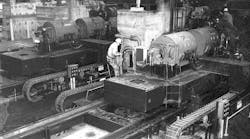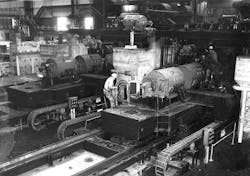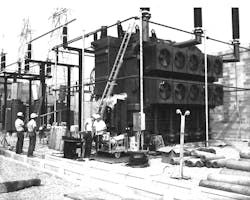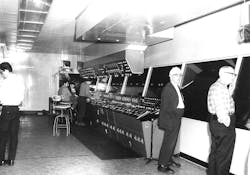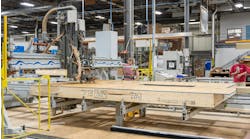Sargent Electric
Pittsburgh
Founded 1907
Back in the late 19th century, Pittsburgh was as well known for its glass manufacturing as its steel production. One of its residents — 12-year-old Edward “Eddie” Sargent — worked at one of the city’s glass plants as a mill crane operator, which kick-started his life-long fascination with electricity. While working at the plant, Sargent not only earned money to support his family, but he also discovered the power of electrification, which led to other jobs in the steel industry and with Westinghouse, a pioneer in the electrical industry.
Over time, Sargent, the future founder of Sargent Electric Co., became a specialist in electrical equipment and the installation of the systems powering houses, transportation, and industry. As is the case with nearly every start-up company, Sargent Electric Co. “zigged and zagged” its way through an obstacle course, which often lies in front of new ventures, says Fred Sargent.
“One of those short-lived detours was a stint in owning a retail lighting fixture store — which Eddie Sargent gave up early in the game, frustrated by customers who sometimes bought table lamps one week, in advance of weekend parties only to return them the following week,” Sargent says.
In 1907, Eddie Sargent opened his own electrical contracting company to better reap the rewards of his efforts. In the early days, the electrical contracting company’s first headquarters building served as both an office and a fixture showroom to highlight new innovations in the electrical industry. While others specialized in the supply of hardware, fixtures, and electrical appliances, Sargent opted to focus on the contracting side of the company for the rest of its history.
More than a century later, Sargent Electric is still based in Pittsburgh and serves the power and steel industries but has expanded to oil and gas, petrochemical, infrastructure, commercial, teledata and wireless work. As it looks to the future, the company is proactively building its workforce and transitioning to new technologies and skills required for new projects, says Rob Smith, president of Sargent Electric.
“With fewer people entering the construction field and more work to deliver, electrical contractors must work with IBEW and new sources of labor to recruit new people into the industry and to focus on maximizing the productivity of our workforce to meet our customers’ needs,” Smith says.
